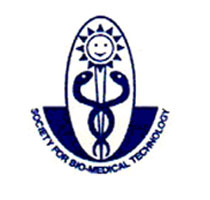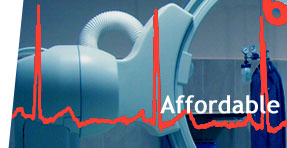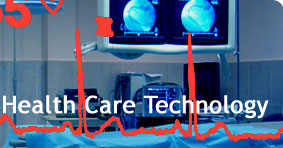|
The field of Science and Technology has made phenomenal progress in almost every field in our country. However, it is yet to make an impact in the area of Healthcare. This is precisely because the areas of Biomedical Technology and Development of Biomedical Devices is a very complex area involving several disciplines of Engineering like Instrumentation, Electronics, Telecommunication, Material Science, etc.,. This is further compounded by the absence of well-equipped centers for testing & evaluation and also the non-existence of a proper recognized Certifying Body in the country to certify these biomedical products. As a result most of the equipments and devices, whether for diagnostic or therapeutic purposes, as well as high technology medical consumables are being imported at high cost. The situation has widened the gap between the haves and the have-nots in accessing state of art healthcare. A unique platform integrating engineers, medical professionals and industries was necessitated to realize the goal of indigenous technologies so that healthcare becomes affordable.
It was in this background that the Society for Biomedical Technology was set up to facilitate the development of affordable healthcare technologies which are otherwise beyond the reach of large sections of our population.
The Society was registered at Bangalore under the Registrar of Societies, Karnataka on 01 Oct 1993. The responsibility of driving SBMT activities has been entrusted to Defence Bioengineering and Electromedical Laboratory (DEBEL) at Bangalore as DEBEL has multi-disciplinary research activities ranging from Life Support Systems to Biomedical Engineering to Material Science. Director, DEBEL functions as the Chief Executive of the Society.
The dynamic leadership of Dr. APJ Abdul Kalam has brought DRDO scientists from a number of its laboratories, medical specialists from well-known healthcare centres and a few chosen representatives of the industry to a common platform, and this experiment of networking of ‘brain power’ to relieve pain of suffering fellow citizens has resulted in the development of a number of medical equipment, diagnostic consumables and devices.
The Society, initially, set about the task of co-ordinating the various agencies and made extensive study of the spin-off potentials of technologies perfected under the major programmes of DRDO like Integrated Guided Missiles Development Programme, Light Combat Aircraft, Electronic Warfare Systems, Main Battle Tank and Armaments. It has made a beginning utilizing expertise in the areas of microprocessor, laser, image processing, telemetry, advanced composite materials, polymers and special alloy technologies.
The efforts of SBMT for nearly two decades since its inception have brought scientists from several organizations / institutions to collaborate with medical professionals and industry partners leading to some promising results in the form of high technology based medical devices at an affordable cost. In line with the country’s quest for self reliance in Defence and other technologies, SBMT is also attempting to give impetus to indigenization of medical technology. During the last eighteen years the SBMT has made considerable progress and indigenously developed several products. The experience gained so far has been very helpful in carrying forward the objectives more effectively and vigorously.
So far, SBMT has undertaken several projects to design and develop medical devices many of which have been completed successfully and transferred to the industry. These include: Kalam-Raju coronary stent, cardiac pacemaker, Drishti eye laser system, Cytoscan, Floor reaction orthosis and Titanium based dental implants. Initially, SBMT relied heavily on spin-off potentials from defence related technologies of DRDO, now it has fanned out to include academic institutions and industries to further its objectives. The Society has recently formed ‘Interest Groups’ comprising doctors, engineers and Industry representatives to identify important medical devices and equipment that can be taken up for indigenization.
|

















